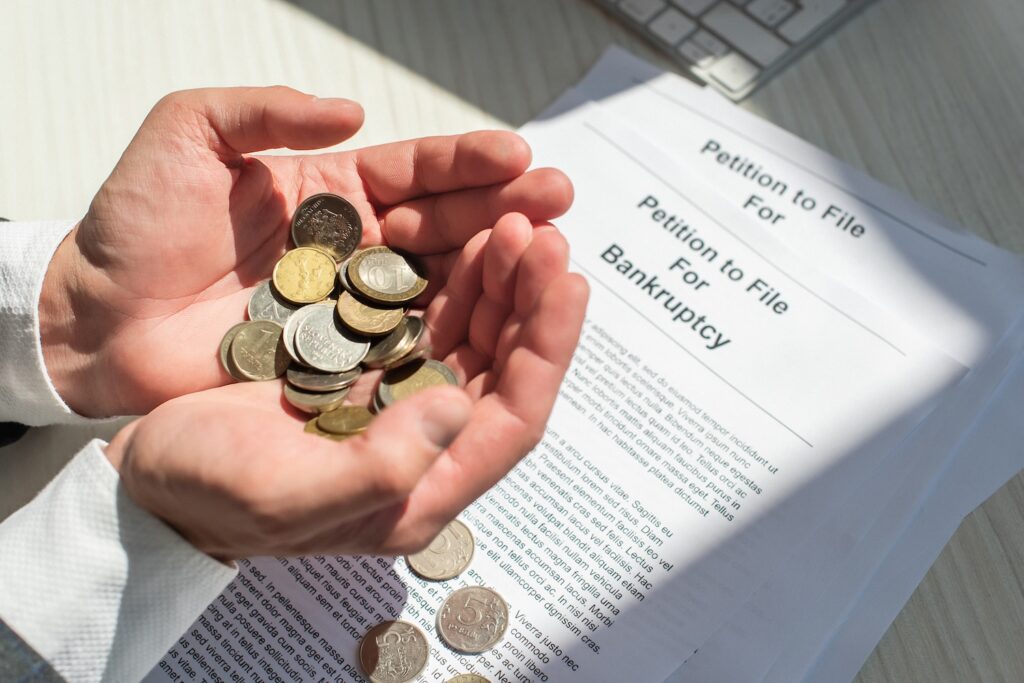Table of Contents
When Jackson, Tennessee, families consider bankruptcy, they often assume it will eliminate all their debts. While bankruptcy is incredibly powerful for eliminating most types of debt, it’s crucial to understand that some debts survive the bankruptcy process and remain your responsibility afterward.
Understanding which debts cannot be discharged prevents disappointment and helps you make informed decisions about whether bankruptcy is right for your situation. After handling over 15,000 bankruptcy cases in West Tennessee over 28+ years, I’ve seen families surprised by debts that survived their bankruptcy – and I want to make sure you have complete information upfront.
Let me break down exactly which debts survive bankruptcy in Tennessee and what options you may have for dealing with them.
Priority Debts: The Untouchables
Certain debts are considered so important that federal bankruptcy law specifically prevents their discharge. These “priority debts” include:
Child Support and Alimony
All domestic support obligations survive bankruptcy, including:
- Current child support payments
- Past-due child support (arrearages)
- Spousal support/alimony
- Property settlement agreements that qualify as support
Important note: While you can’t discharge these debts, Chapter 13 bankruptcy can help you catch up on past-due support through a payment plan while protecting you from wage garnishment and other collection actions.
Recent Tax Debts
Most tax debts cannot be discharged, but there are important exceptions:
Non-dischargeable tax debts:
- Income taxes are less than 3 years old
- Taxes where returns were filed late (within 2 years of bankruptcy)
- Taxes where no return was filed
- Payroll taxes and trust fund taxes
- Tax penalties on non-dischargeable taxes
Dischargeable tax debts (rare but possible):
- Income taxes over 3 years old, where returns were filed on time, and have not been assessed within the last 240 days
- Some older tax penalties
Confused about whether your tax debt can be discharged? The rules are complex, and each situation is unique. Contact our office at 731-554-1313 for a detailed analysis of your tax situation.
Student Loans: The General Rule
Most student loans cannot be discharged in bankruptcy, including:
- Federal student loans (Stafford, PLUS, Perkins, etc.)
- Private student loans from banks and credit unions
- Parent PLUS loans
- Graduate school loans
Rare exception: Student loans can be discharged if you can prove “undue hardship” through the Brunner test, which requires showing:
- You cannot maintain a minimal standard of living while repaying loans
- Your financial hardship will persist for a significant portion of the loan repayment period
- You have made good faith efforts to repay the loans
This standard is extremely difficult to meet, and successful student loan discharges are rare.
Debts from Fraudulent or Criminal Activity
Debts Obtained Through Fraud
If you obtained credit through pretenses, those debts cannot be discharged:
- Credit cards obtained with false income information
- Loans based on fraudulent financial statements
- Identity theft-related debts
- Cash advances over $1,000 taken within 70 days of filing
- Luxury purchases over $800 made within 90 days of filing
Criminal Fines and Restitution
All debts related to criminal activity survive bankruptcy:
- Court fines and penalties
- Criminal restitution orders
- DUI-related obligations
- Traffic tickets and court costs
Civil Judgments for Intentional Acts
Debts arising from willful and malicious injury cannot be discharged:
- Assault and battery judgments
- Intentional property damage
- Some drunk driving accident judgments
- Embezzlement or theft judgments
Facing collection on any of these types of debts? Understanding your rights and options is crucial. Learn more about our bankruptcy process and how we can help.
Secured Debts: Special Rules Apply
Mortgages and Car Loans
These debts have special rules in bankruptcy:
What bankruptcy does:
- Eliminates your liability for the debt
- You’re no longer responsible for deficiency balances if you surrender the property
What bankruptcy doesn’t do:
- Remove the lien from your property
- Allow you to keep the property without continuing payments
Your options:
- Keep and pay: Continue making payments and keep the property
- Surrender: Give back the property with no further obligation
- Redeem: Pay the current value in a lump sum (personal property only)
Other Secured Debts
Similar rules apply to other secured debts like:
- Boat and RV loans
- Equipment financing
- Furniture and appliance financing
Recent Debts: Timing Matters
Bankruptcy law prevents people from loading up on debt right before filing. Certain recent debts may not be discharged:
Credit Card Cash Advances
- Cash advances over $1,000 taken within 70 days before filing
- The creditor must prove you had no intent to repay
Luxury Purchases
- Non-essential purchases over $800 made within 90 days of filing
- Examples: jewelry, vacations, entertainment, expensive electronics
Recently Incurred Debt
- Large purchases made shortly before filing may be scrutinized
- Courts look for signs of fraud or abuse
Debts Not Listed in Your Bankruptcy
Any debt you don’t list in your bankruptcy petition will not be discharged. This is why it’s crucial to:
- Provide complete and accurate creditor information
- Include all debts, even those you want to keep paying
- Update your attorney if you remember additional debts before filing
During our comprehensive consultation process, I’ll help you identify all creditors and debts to ensure nothing is overlooked.
Real-World Examples from Jackson Clients
Case 1: Mixed Tax Debt
John from Jackson owed $15,000 in income taxes from multiple years. We analyzed each tax year:
- 2019 taxes: $8,000 (dischargeable – over 3 years old, timely filed)
- 2021 taxes: $4,000 (non-dischargeable – too recent)
- 2022 taxes: $3,000 (non-dischargeable – too recent) Result: $8,000 eliminated, $7,000 remains (manageable amount for payment plan)
Case 2: Student Loan Strategy
Sarah had $45,000 in student loans plus $35,000 in credit card debt. While we couldn’t discharge the student loans, eliminating the credit card debt freed up $800/month that she could apply to student loan payments or income-driven repayment plans.
Case 3: Old vs. New Credit Card Debt
Mike had $50,000 in credit card debt, but $5,000 was from luxury purchases made 60 days before filing. We delayed filing for 30 additional days to ensure all debt would be dischargeable.
Strategies for Non-Dischargeable Debts
Even if certain debts survive bankruptcy, filing can still provide significant benefits:
Chapter 13 Payment Plans
- Organize non-dischargeable debts into manageable payments
- Stop interest and penalties on many tax debts
- Protect against wage garnishment while catching up
Improved Cash Flow
- Eliminating dischargeable debts frees up money for non-dischargeable debts
- A better debt-to-income ratio helps with payment negotiations
- Reduced financial stress improves decision-making ability
Asset Protection
- Bankruptcy protects your property while dealing with remaining debts
- Prevents seizure of exempt assets for non-dischargeable debts
Meet with our experienced bankruptcy attorney to develop a comprehensive strategy for both dischargeable and non-dischargeable debts.
Common Myths About Non-Dischargeable Debts
Myth: “If I have student loans, bankruptcy won’t help.”
Reality: Even if student loans aren’t discharged, eliminating other debts dramatically improves your ability to manage student loan payments.
Myth: “Tax debts never go away.”
Reality: Older income tax debts can often be discharged if they meet specific criteria.
Myth: “I shouldn’t file bankruptcy if some debts will remain”
Reality: Eliminating 70-80% of your debt burden while organizing the rest is still life-changing for most families.
Myth: “Non-dischargeable debts get worse in bankruptcy.”
Reality: Bankruptcy often stops interest and penalties on tax debts and provides protection from aggressive collection.
How We Handle Non-Dischargeable Debts
When you work with Rob Vandiver Law, we:
- Conduct a comprehensive debt analysis to identify which debts can and cannot be discharged
- Develop strategies for managing non-dischargeable debts post-bankruptcy
- Coordinate with tax professionals when necessary for complex tax situations
- Negotiate payment plans for remaining debts when possible
- Provide ongoing guidance for post-bankruptcy financial planning
Questions to Ask During Your Consultation
When meeting with any bankruptcy attorney in Jackson, ask:
- Which of my specific debts cannot be discharged?
- What strategies exist for managing non-dischargeable debts?
- Should I wait to file to maximize dischargeable debt?
- How will bankruptcy affect my non-dischargeable debts?
- What happens if I discover additional debts after filing?
The Bottom Line for Jackson Families
Don’t let non-dischargeable debts prevent you from filing bankruptcy if it would help your overall situation. Most Jackson families I help eliminate 80-90% of their debt burden through bankruptcy, making the remaining debts manageable.
Even partial debt relief can be life-changing. Eliminating credit card payments, medical bills, and personal loans often frees up enough money to comfortably handle remaining obligations like taxes or student loans.
The key is understanding exactly what you’re dealing with and developing a comprehensive plan that addresses both dischargeable and non-dischargeable debts.
Get Clear Answers About Your Debts
Stop wondering which of your debts can be eliminated through bankruptcy. During your free consultation, I’ll review every debt on your list and explain exactly what bankruptcy can and cannot do for your specific situation.
You deserve complete, honest information about your options. No surprises, no false hopes – just clear answers that help you make the best decision for your Jackson family’s financial future.
Ready to learn which of your debts can be eliminated? Contact Rob Vandiver Law today for your comprehensive debt analysis.
Call now: 731-554-1313 Email: receptionist@robvandiver.com Schedule your free consultation online
The sooner you understand your options, the sooner you can start planning your path to financial freedom.




